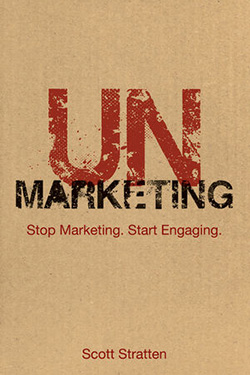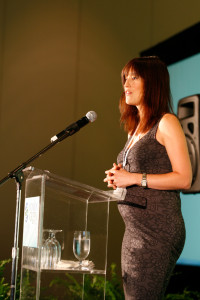 The Economic Gardening Loan Fund was created in 2009 out of Florida Statutes 288.1081 within the Office of Tourism, Trade, and Economic Development. The Economic Gardening Loan Fund (EGLF) is to support those small businesses that are in the best position to use the loan to continue making a successful long-term business commitment to Florida.
The Economic Gardening Loan Fund was created in 2009 out of Florida Statutes 288.1081 within the Office of Tourism, Trade, and Economic Development. The Economic Gardening Loan Fund (EGLF) is to support those small businesses that are in the best position to use the loan to continue making a successful long-term business commitment to Florida.
innovation DAILY
Here we highlight selected innovation related articles from around the world on a daily basis. These articles related to innovation and funding for innovative companies, and best practices for innovation based economic development.
Denmark: Falling behind the top-5 innovation leaders
 The most recent European Innovation Scoreboard (EIS, 2009), ranks Denmark among the top-five innovation leaders, an impressive number that hides a rather grim reality. Denmark and two other of the countries in the top-five, Sweden and the United Kingdom, have not experienced annual growth in innovation performance and thus are the slow growers among the innovation leaders. In Denmark’s case, one of the reasons for this is that Danish companies are not entering into external collaborations, according to Jeffrey Saunders, Futurist at the Copenhagen Institute for Future Studies, in a presentation to the Danes Abroad Business Group Online forum. The EIS shows an 8% decline over the last five years in the collaboration among innovative SMEs in Denmark.
The most recent European Innovation Scoreboard (EIS, 2009), ranks Denmark among the top-five innovation leaders, an impressive number that hides a rather grim reality. Denmark and two other of the countries in the top-five, Sweden and the United Kingdom, have not experienced annual growth in innovation performance and thus are the slow growers among the innovation leaders. In Denmark’s case, one of the reasons for this is that Danish companies are not entering into external collaborations, according to Jeffrey Saunders, Futurist at the Copenhagen Institute for Future Studies, in a presentation to the Danes Abroad Business Group Online forum. The EIS shows an 8% decline over the last five years in the collaboration among innovative SMEs in Denmark.
Start-Ups Contnue to "Bloom" in Argentina
 In the 90s, Argentina became Latin America’s Internet center, which
was a good sign of an entrepreneurial spirit among its people. Endeavor,
the United States nonprofit that helps foster high impact
entrepreneurship, had its first success in the developing world in
Argentina just before the country’s last major financial collapse. Given
Argentina’s turbulent economic history, I thought I would take a quick
look at the role of entrepreneurs over the past 10 years since
Argentina’s Internet startup boom.
In the 90s, Argentina became Latin America’s Internet center, which
was a good sign of an entrepreneurial spirit among its people. Endeavor,
the United States nonprofit that helps foster high impact
entrepreneurship, had its first success in the developing world in
Argentina just before the country’s last major financial collapse. Given
Argentina’s turbulent economic history, I thought I would take a quick
look at the role of entrepreneurs over the past 10 years since
Argentina’s Internet startup boom.
It appears that Argentinean entrepreneurs are resilient. In “Fiscal Chaos Aside, Start-Ups Bloom in Argentina,” the New York Times captured this resilience really well. A catalyst for the evolving start-up culture has been the rise of a local culture of capital investment in startups. This is an important step for a country where it has been historically thought that only those who benefitted from a family inheritance and connections to authorities could start and grow businesses. It is also a significant improvement in terms of access to capital and willingness to invest. When the Argentine government defaulted in 2001, the country was cut off from external sources of capital. In 2008, the nationalization of private pension funds also adversely affected private investment spending. Also important is the fact that, like angels in the U.S., Argentina’s angels are providing expertise along with funds. As the New York Times article explains, several angels founded their own start-ups during past crises.
Voting Open – Top 40 Innovation Bloggers
 Voting is now open in the Top 40 Innovation Bloggers Contest hosted by Blogging Innovation.
Voting is now open in the Top 40 Innovation Bloggers Contest hosted by Blogging Innovation.
If you’re a first time visitor to Blogging Innovation, we have nearly 1,700 articles on site with the aim to make innovation and marketing insights available for the greater good. Please check out our search feature, jump to a category, or try a random post or two at the bottom.
People who vote (or who nominated someone) will be entered into the prize drawings for a range of great prizes (more than $10,000 worth), including:
- 3 signed advance copies of Stoking Your Innovation Bonfire by Braden Kelley (get it before its October launch date) – priceless
- 1 ticket to the World Business Forum (October 5-6, 2010 in New York City) – $2,500 value
- 1 ticket to the Future Trends 2010 conference (October 18-20, 2010 in Miami) – $2,500 value
- Signed copy of The Power of Pull by John Hagel III and John Seely Brown and Lang Davidson (signed by John Hagel III and John Seely Brown)
- 1 ticket to the EPIC 2010 conference (October 27-29, 2010 in New York City) – $2,500 value
- 1 ticket to the World Innovation Forum (June 7-8, 2011 in New York City) – $2,500 value
- Four copies of “Personality Poker” by Stephen Shapiro – $104 value
- One 10-pack of Personality Poker cards from Stephen Shapiro – $125 value
Note: Rich Bendis is in the running. Show your support and vote!
Who shapes social, economic, and public policy for women’s business?

The answer is simple — You do.
How do you do it?
By sharing your experiences, challenges and insights!
Register now for W-Biz Insight™, the national online survey research panel devoted exclusively to women business owners.
The Center for Women's Business Research seeks women business owners across America to participate in a new survey on our online research panel, W-Biz Insight. For nearly two decades women business owners, corporate executives, advocates, policy makers and government leaders have turned to the Center for Women’s Business Research for groundbreaking research and objective analysis on the economic and social impact of women business owners.
Our latest survey focuses on questions around business growth and hiring. The findings from this survey will be presented on September 29, 2010 at the National Women's Business Council’s Summit on “Accessing Capital and Financing Growth, ” a key session of WIPP’s (Women Impacting Public Policy) 2010 Annual Leadership Conference.
As a woman business owner, we invite you to join W-Biz Insight and make your voice heard. The registration process is short – about 10 minutes – and by participating in research on issues critical to women business owners, you contribute to something important.
For more information about W-Biz Insight -- click here.
30 Ways to Rate a College
The lines below connect raters to each of the measures they take into account. Notice how few measures are shared by two or more raters. That indicates a lack of agreement among them on what defines quality. Much of the emphasis is on “input measures” such as student selectivity, faculty-student ratio, and retention of freshmen. Except for graduation rates, almost no “outcome measures,” such as whether a student comes out prepared to succeed in the work force, are used.

China experts call for pooling EU's overseas business advice

 A forum of experts on EU-China economic relations has argued in favour of re-organising existing national business advisory structures in order to pool information in the European interest.
A forum of experts on EU-China economic relations has argued in favour of re-organising existing national business advisory structures in order to pool information in the European interest.
The China Advisory Council suggests rebranding business centres currently run by EU member states in China as 'European Houses' in order to boost business opportunities.
Without necessarily building new structures, the simple "double-hatting" of existing member states' SME centres could generate a European presence in provinces and cities of China where some member states currently do not have a presence.
As one Council member put it, "the EU should pool all the information from EU member states and provide an overall European information platform for all SMEs".
Innovation Crisis in Black America Pt. 2: Where are Black Entrepreneurs and Angels?
There's an economic crisis of monumental proportions occurring in Black America. The challenges stretch across a vast spectrum of education, unemployment, entrepreneurship, investment and innovation. But you won't hear much about this crisis from any of the so-called "mainstream" media.
Black Unemployment in America: Media Reports
The New York Times touched on the issue in, "The New Poor: Blacks in Memphis Lose Decades in Economic Gains." The Times narrowed America's economic crisis to the financial impact on a Memphis family and offered statistics to what it dubbed, "The Great Recession." But the focus of the article is limited to job losses, foreclosures and economic despair in a single region that has turned back the calendar of progress.
The Seven Deadly Sins of Social Media
 In this excerpt from his new book UnMarketing: Stop Marketing. Start Engaging. author Scott Stratten shows the profane acts users of Twitter, Facebook, and LinkedIn commit. How many are you guilty of?
In this excerpt from his new book UnMarketing: Stop Marketing. Start Engaging. author Scott Stratten shows the profane acts users of Twitter, Facebook, and LinkedIn commit. How many are you guilty of?
Social Media is so new that most people are making it up as they go,1
but most people seem to make the same mistakes. Or dare I say sins. . .
. We look at the biggest players online for business--Facebook,
Twitter, and LinkedIn--but the same concepts can be applied to any
social media site.
Greed
Greed is quite a popular sin. Twitter by default is a self-centered tool. It's about us. But it's 100 times better if used as a conversational tool versus a dictation. I see people using Twitter as a glorified RSS feed for their blog or an ad-puker. So absent of personality, I wonder why they even try. Yes, they are in business, but if they believe that business is built on relationships, they need to make building them their business.
This sin holds a special place for the people who only retweet compliments about themselves. I was talking to a colleague of mine and she was asking how I have built such a large amount of followers. I mentioned that I get retweeted a lot and I retweet others. Her reply was "I retweet others all the time!" When I checked out her page, the only time she ever retweeted anyone was if it was a compliment about her or a #FollowFriday2 mention with her in it. You may as well tweet while looking in a mirror telling yourself you're good enough, you're smart enough, and gosh darn it, people like you.
Creating Digital Worlds of the Future
 Under the theme "Build Your Own World," more than 100 artists are creating fanciful universes in the hopes of prompting civic engagement at this arts-and-tech biennial in San Jose. We peeked at six intriguing projects.
Under the theme "Build Your Own World," more than 100 artists are creating fanciful universes in the hopes of prompting civic engagement at this arts-and-tech biennial in San Jose. We peeked at six intriguing projects.
You Were Denied Funding: Now What?
 According to a report by the Angel Capital Education Foundation (ACEF) only between 1 and 4% of entrepreneurs that apply for angel investment funding will make it through this process to secure angel investment. This
According to a report by the Angel Capital Education Foundation (ACEF) only between 1 and 4% of entrepreneurs that apply for angel investment funding will make it through this process to secure angel investment. This
means that there are hundreds of thousands of entrepreneurs that are denied angel investment funding each year. If you need this capital to grow or sustain your business what should you do after your denial to keep your business alive?
Vision, Strategy, Tactics Plan - Your first step should be to go back and develop a vision, strategy, and tactics plan to re-assess your situation. What is your vision for this business? What handful of strategies are you utilizing to reach your vision, and what day-to-day tactics are you using to best implement your strategy? If you do this one of two things will happen, you may realize you don't need the extra capital right now to accomplish your vision, or you will determine what steps you need to take to prepare your business for success and a successful capital raising campaign.
A new era for venture capital investment in Ireland?
![]() In his look back over the past week, Siliconrepublic editor John Kennedy senses a new sense of urgency, energy and innovation among Ireland’s venture capital community. Could the conditions not be greater for a technology start-up in Ireland today?
In his look back over the past week, Siliconrepublic editor John Kennedy senses a new sense of urgency, energy and innovation among Ireland’s venture capital community. Could the conditions not be greater for a technology start-up in Ireland today?
If you think about it, 20 years ago there was no venture capital industry in Ireland to speak of. Venture capital as an industry is one that needs to be thoroughly understood if we are to ever gain that goal of being the Silicon Valley of Europe.
My first dealings with venture capitalists came about pretty much at the end of the Nineties, when I got to know players like ACT Venture Capital, Delta and Trinity Capital. At that time, Iona was an acclaimed success story, Baltimore was in the FTSE 100 and Trintech was readying itself for Nasdaq.
VCs Shy Away From Stem CellsVCs Shy Away From Stem Cells
 Embryonic stem cell research, once again in the political crosshairs following last month’s court ruling halting most federal funding, has an even bigger money problem.
Embryonic stem cell research, once again in the political crosshairs following last month’s court ruling halting most federal funding, has an even bigger money problem.
The Illustrated Guide to a Ph.D.
Matthew Might, a computer science professor at the University of Utah, writes: “Every fall, I explain to a fresh batch of Ph.D. students what a Ph.D. is. It’s hard to describe it in words. So, I use pictures.” Here it goes. Matt’s Illustrated Guide:

Women In Green
 Last year, multiple reports were released suggesting that women lead their households in green. They are “recycling enforcers” and “out green” men in practices such as reusable shopping bag use and the desire to reduce energy consumption in their homes.
Last year, multiple reports were released suggesting that women lead their households in green. They are “recycling enforcers” and “out green” men in practices such as reusable shopping bag use and the desire to reduce energy consumption in their homes.
Studies by the Organisation for Economic Co-operation and Development (OECD) have found that women are more likely than men to buy eco-oriented, recyclable or energy-efficient products.
However, this leadership in the home does not often translate to the workplace, and jobs in the green economy are being created in fields predominantly populated by men (think: engineering or construction).
Indeed, the Women’s Bureau of the U.S. Department of Labor notes that “Green jobs are diverse, rewarding, and overwhelmingly nontraditional to women.”
EPA Selects Its Model Cities of Green Design

 The EPA has announced five selected model cities to lead the “Greening America’s Capitals”
program, a new initiative of the Partnership for Sustainable
Communities program aimed at helping state capitals develop
implementable and innovative communities incorporating the principles of
sustainable design.
The EPA has announced five selected model cities to lead the “Greening America’s Capitals”
program, a new initiative of the Partnership for Sustainable
Communities program aimed at helping state capitals develop
implementable and innovative communities incorporating the principles of
sustainable design.
The project represents an agreement between the EPA, the U.S. Department of Housing and Urban Development (HUD) and the U.S. Department of Transportation (DOT) to coordinate federal housing, transportation and environmental investments; promote equitable development; protect public health and the environment and address climate change challenges.
The five cities chosen from 38 applicants were Boston; Jefferson City, Mo.; Hartford, Conn.; Charleston, W.Va,; and Little Rock, Ark.
These cities will receive a team of EPA-funded urban planners and landscape architects to produce plans for the pilot neighborhoods and provide the technical assistance required by each city.
Looking For Work? Learn Ruby On Rails
 There are close to 15 million unemployed people in the United States today. Here's our advice to avoid becoming one of them: learn Ruby on Rails.
There are close to 15 million unemployed people in the United States today. Here's our advice to avoid becoming one of them: learn Ruby on Rails.
Rails has become the most popular framework for developing web applications, and people who know it are in serious demand. Take this item in a job posting, that is offering equity in a series A funded startup:
Our site is built in Rails with a MySQL database. Ideally, you’d have Rails experience; however, we are open to strong developers who would be excited to learn Rails.
5 Tips for Becoming an Entrepreneur in Retirement
 The extensive knowledge and experience that baby boomers have
accumulated throughout their working lives could make them the ideal
entrepreneurs. Increasingly, older workers who are unable to find new
jobs or are looking for increased workplace flexibility go to work for
themselves. Almost a quarter of workers who change jobs after age 51
become self-employed, according to an AARP and Urban Institute analysis.
Here are some tips for becoming an entrepreneur in retirement:
The extensive knowledge and experience that baby boomers have
accumulated throughout their working lives could make them the ideal
entrepreneurs. Increasingly, older workers who are unable to find new
jobs or are looking for increased workplace flexibility go to work for
themselves. Almost a quarter of workers who change jobs after age 51
become self-employed, according to an AARP and Urban Institute analysis.
Here are some tips for becoming an entrepreneur in retirement:
[See 10 Historic Places to Retire.]
Emphasize your experience. Decades of work experience can be a huge advantage in coming up with ideas for a start-up and making a business work. "You want to start with something you already know how to do—a skill that you know you are already good at," says Jeff Williams, chief executive of Bizstarters.com. "The key to having a successful business is to find a problem that you can solve better than other people."
Electric Skin that Rivals the Real Thing
 The tactile sensitivity of human skin is hard to re-create, especially over large, flexible surfaces. But two California research groups have made pressure-sensing devices that significantly advance the state of the art.
The tactile sensitivity of human skin is hard to re-create, especially over large, flexible surfaces. But two California research groups have made pressure-sensing devices that significantly advance the state of the art.
One, made by researchers at Stanford University, is based on organic electronics and is 1,000 times more sensitive than human skin. The second, made by researchers at the University of California, Berkeley, uses integrated arrays of nanowire transistors and requires very little power. Both devices are flexible and can be printed over large areas; they are described this week in separate papers in the journal Nature Materials.
Highly sensitive surfaces could help robots pick up delicate objects without breaking them, give prosthetics a sense of touch, and give surgeons finer control over tools used for minimally invasive surgery. "Our goal is to mimic the human skin," says Zhenan Bao, professor of chemical engineering at Stanford. Human skin responds quickly to pressure and can detect objects as small as a grain of sand and light as an insect.


